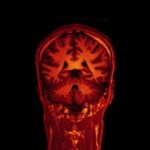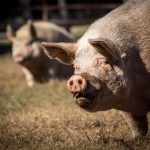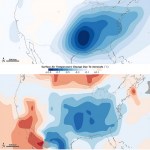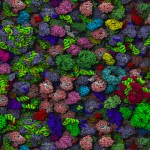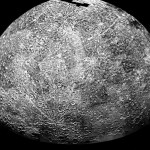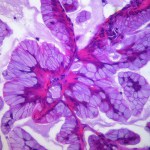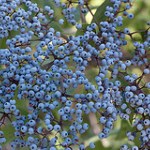Misc
As the U.S. seeks to drive down medical spending, one goal is to eliminate tests and treatments that are ineffective while encouraging price competition among things that work. Passing the buck on to the consumer isn't enough; on The Pump Handle, Liz Borkowski reports that giving patients an incentive to save money on health care causes them to see the doctor less, not "shop smarter." Meanwhile, Orac provides an update on "Choosing Wisely," a program meant to weed out useless procedures by appealing to the prudence of medical specialists instead of patients. In the three years that it has…
New reporting by Inside Climate News shows that petroleum giant Exxon knew, more than thirty years ago, that burning too much fossil fuel would cause catastrophic climate change. Comparing Exxon's subsequent emphasis on profits over planetary health to the efforts of Big Tobacco hiding the dangers of cigarettes, PZ Myers writes "the future is going to look back on rabid capitalism as one of the damning pathologies of our history." Now that the wider public is accepting the fact that anthropogenic global warming will transform and could destroy our way of life, Exxon is very much on the hook.…
You can almost hear the sound of PZ Myers' palm hitting his face as "a couple of vegetarian philosophers with no knowledge of biology" urge humanity to end predation worldwide—so that no more zebras have to suffer at the fangs of a lion, and no more mice at the talons of an owl. Their plea on behalf of prey species, inspired by the model culling of Cecil the lion, calls carnivory simply 'unnecessary;' PZ writes, "it’s as if they are completely unaware of the fact that predation maintains and increases biodiversity, or that there’s more to wildlife than mammals and birds, or that life is a…
Raising ten children—some biological, others adopted or in foster care—is far from a burden for Sharon Astyk. On the contrary, she says it mandates an artfulness to living, allowing her and her husband to help create something new and greater from the sum of many parts. Sharon writes that the result is "more fascinating, more fun, more engaging [...] a job worth building a life around." While some parenting hurdles multiply with more kids, others stay the same—or even vanish. And beyond the concerns of day-to-day living, Sharon knows she is maintaining and building new family ties for foster…
New measurements from NASA's New Horizons spacecraft revealed that Pluto, named for the Greco-Roman god once called Hades, is a little more swollen with ice than previously thought, making it the biggest trans-Neptunian object—more voluminous than rival dwarf planet Eris, which is nevertheless more massive. Greg Laden explains why these orbs are not considered full-fledged planets on his blog.
While Eris orbits the Sun within the 'scattered disc,' Pluto orbits in the Kuiper Belt, a collection of gravelly snowballs that Ethan Siegel says outnumber all the planets in our galaxy. The Kuiper Belt…
As researchers continue to document the intelligence and emotional acuity of animals, beasts begin to look more like brethren, and food more like friend. On Pharyngula, PZ Myers shares a decision by the U.S. Fish and Wildlife Service that gives chimpanzees used in research the same endangered status as their wild cousins. According to Science, "organizations that want to continue working with chimpanzees will have to document that the work enhances the survival of the species and benefits chimps in the wild." PZ writes, "I want to see more studies done on our closest relatives — but it…
Climate change denialists are apt to grasp at straws, which may explain their heralding of a global warming "hiatus" or "pause" that since 1998 has supposedly invalidated scientific consensus and its models of climate change. Clearer and more clever heads have renamed the hiatus a "faux pause," playing off the French faux pas which means false step or blunder. For one thing, the data showed only a relative slowdown in warming, not a pause; temperatures were still increasing. As Greg Laden says, "a hiatus or a pause in global warming is at present physically impossible." Now a new paper…
A groundbreaking study published in PLOS ONE offers hope that scientists can reverse the development of antibiotic resistance among bacteria with the help of "a mathematical model that pinpoints optimal antibiotic cycling patterns." On The Pump Handle, Kim Krisberg writes, "the research comes at a time of widespread concern that without a coordinated, well-funded response to growing antibiotic resistance, medicine could lose some of its most effective, life-saving tools." The collaboration between biologists and mathematicians yielded a piece of software dubbed "Time Machine" that "computes…
On ERV, Abbie Smith provides an update on a pioneering treatment for hemophilia that uses viruses to insert missing genes in a patient's DNA. Hemophilia results from from the mutation or deletion of a gene that makes a blood clotting agent called Factor IX; without it, hemophiliacs are at risk for uncontrolled bleeding. While Factor IX can be delivered pharmaceutically, utilizing viruses to modify patients' DNA yields long-term improvements in natural Factor IX production. Abbie writes, "the amount of therapeutic Factor IX these patients needed (on average) dropped from 2613 IU/kg to 206. The…
Yesterday the MESSENGER spacecraft circled behind Mercury one last time, where no one on Earth could see it, and slammed into the surface of the intemperate planet at an estimated 8750 miles per hour. It was the second probe to visit Mercury—Mariner 10 completed three fly-bys of the planet in 1974, and according to NASA, still orbits the sun; probably fried, out of fuel, a derelict.
Mosaic Image of Mercury as photographed by Mariner 10. Image credit: NASA/JPL.
MESSENGER began its scientific mission in 2011. With its destination so near to the sun, under the influence of…
In the wake of the Willie Soon scandal, scientists are taking a hard look at the Smithsonian and other institutions at the forefront of research and public outreach. Should these organizations really be supported by industrialists who deny that carbon emissions continue to warm the planet, disrupt the climate, amplify extreme weather, and threaten to swallow us in a deluge of melted ice and presumably locusts? For that matter, should exhibits on evolution be subject to the whims of donors who insist the Earth is only six thousand years old? If not, where will less ideologically…
It's getting harder and harder to hate vaccines in America. The trend will only continue as diseases like measles re-emerge because of some parents' paranoia. Much of the anti-vaccine sentiment of the last twenty years resulted directly from scientific fraud—and most anti-vaccine propaganda likewise employs scientific terminology to sound credible. But more people are waking up to the fact that vaccines simply do not cause autism or other mental 'disorders,' and public figures are altering their stances accordingly. Some Republicans are embracing the right to withhold vaccines from a child…
Greg Laden reports on a hominid fossil "recovered from the seabed near Taiwan" which reveals new levels of dental diversity among proto-humans and may qualify as a new species. Greg says the specimen known as Penghu "is yet another indicator that multiple different hominids lived on the Earth at the same time after the rise of Homo erectus." But why was it located underwater? In another example of what lies beneath, Dr. Dolittle marvels at "an unexpected find and very exciting moment for researchers;" the discovery of small fish and invertebrates thriving below 740 meters of ice near the…
When it was reported that many of the footballs in the AFC Championship game were inflated below the required minimum pressure, the triumphant New England Patriots were accused of cheating. Looking for an explanation, Chad Orzel whipped out some footballs, a freezer, and the Ideal Gas Law to do some delving. Physically, air pressure depends on the volume of a gas, the number of molecules contained therein, and temperature. Since the volume of a football (versus a balloon) doesn't change much depending on how much air is inside, a change in temperature was the best chance for an innocent…
This new year, researchers concluded that 2/3 of the difference in cancer risk between different parts of the body can be attributed to the number of stem cell divisions those parts undergo. More cell divisions reflect a higher risk as errors that occur naturally during the DNA replication process can contribute to the development of cancer. In other words, the same genetic mutability that enables evolution also ensures that many people will be afflicted by a terrible disease. On Pharyngula, PZ Myers suggests this is one reason our cells naturally get old and stop dividing:…
On Life Lines, Dr. Dolittle examines the fascinating parallels between hummingbird and insect flight. He and/or she writes: "The researchers placed nontoxic paint on the wing of a ruby-throated hummingbird at 9 different spots then videotaped the animal flying at 1,000 frames per second with 4 cameras simultaneously." Despite being far removed from insects on the phylogenetic tree, hummingbirds "stir up air around their wings in a way similar to insects like mosquitoes and dragonflies." This is an example of convergent evolution, as natural selection engineers similar solutions for very…
New research from the Weizmann Institute of Science reveals that "cells in our brain form little hexagonal grids that keep us oriented, map-like, in our surroundings." Weizmann's resident blogger describes this finding as "a pyrotechnic flash of insight that changes how we understand the brain to work." Game developers delight; this discovery shows "that you can really apply mathematical models to understand how our mammalian brains get their bearings." It may also have immediate implications for understanding human brain disorders such as vertigo. Meanwhile, on ERV, Abbie Smith explores a…
Modern science stands on the shoulders of giants, as well as average humans, dwarves and elves, ancient civilizations, and all the bones of the dead—forgotten and otherwise. But sometimes you have to start a new branch of science from scratch. On Uncertain Principles, Chad Orzel continues his count-up to Dec. 25, the birthday of Sir Isaac Newton. Orzel explores the origins of agriculture in the Americas, where nativized people made the best of their local flora, turning a humble, nearly inedible grass into one of the biggest food staples on Earth. Chad writes, "Our other staple crops are also…
On Pharyngula, PZ Myers criticizes the stubborn obfuscations of Michael Behe, who refuses to yield his illogical calculations. Behe says (rightly) that a certain mutation necessary for drug resistance in the malaria parasite has about a 1 in 1020 chance of occurring. But the mutation is also detected in 96% of malaria patients who respond well to the drug; it proliferated widely because, by itself, it had no impact on the parasite's fitness. The parasite needed another mutation, occurring at a later date, to develop resistance to the drug. Behe rests his case for divine intervention on the…
On Aardvarchaeology, Martin Rundkvist compiles his best November tweets into one riotous and insightful document. First up: "This chocolate praline contains something that looks and smells like shampoo. Apparently it’s flavoured with elderflower extract." Elderberry has been used for medicinal purposes worldwide for thousands of years, but maybe the praline makers should use the delicious berry extract instead of flower. Kim Krisberg considers less odorous possibilities on The Pump Handle, citing research that says advantages such as "proximity to parks and open spaces" help children start…
